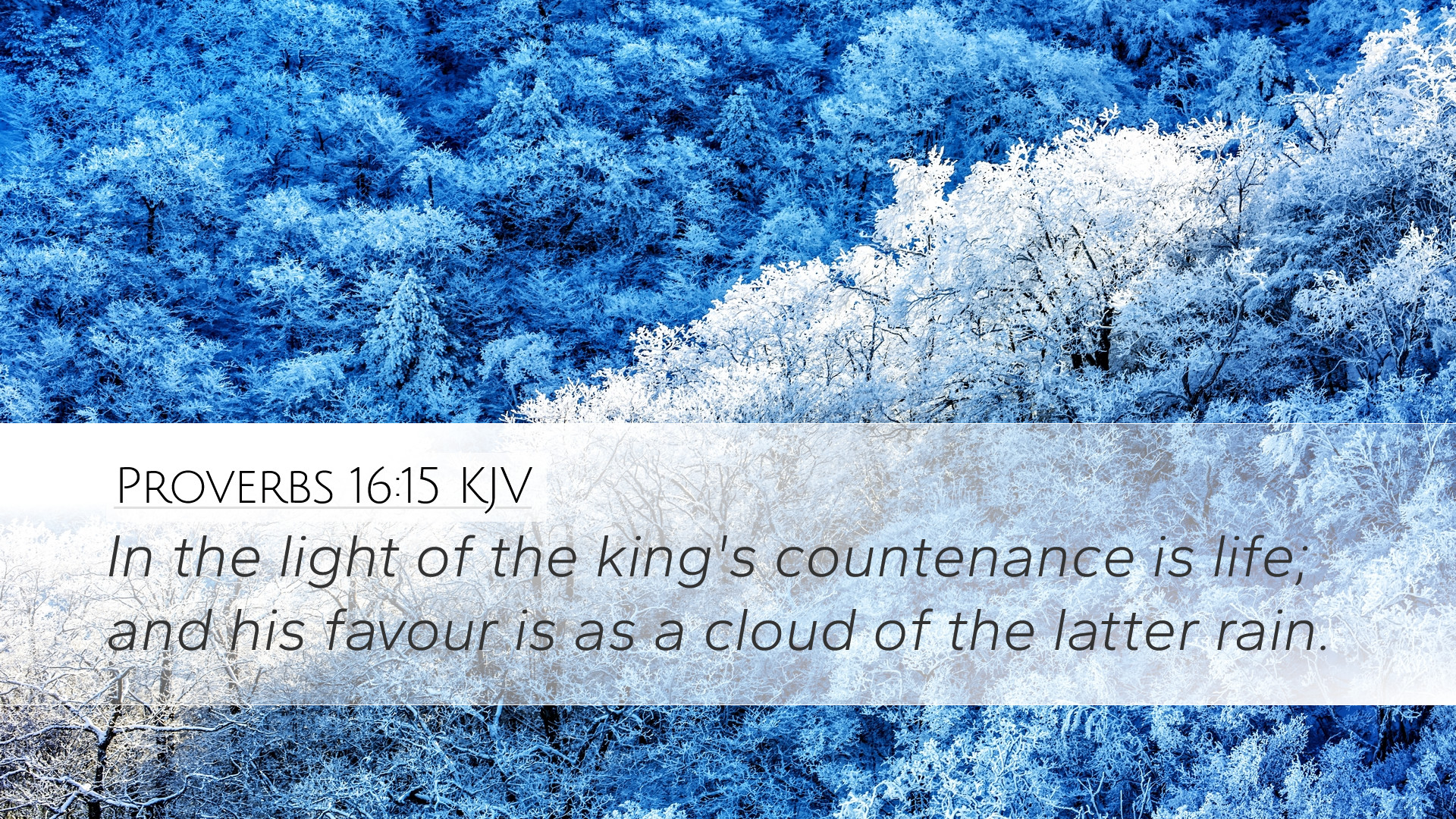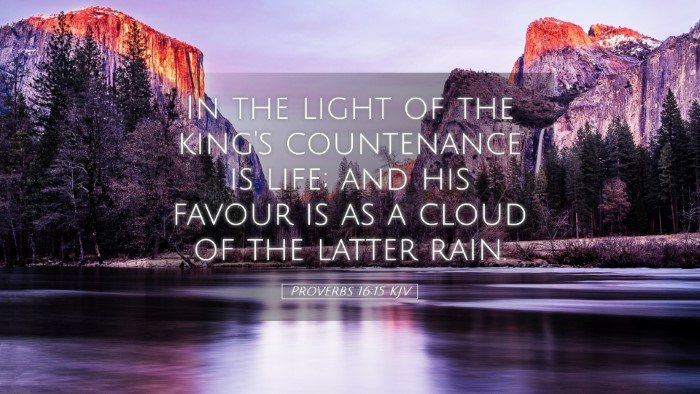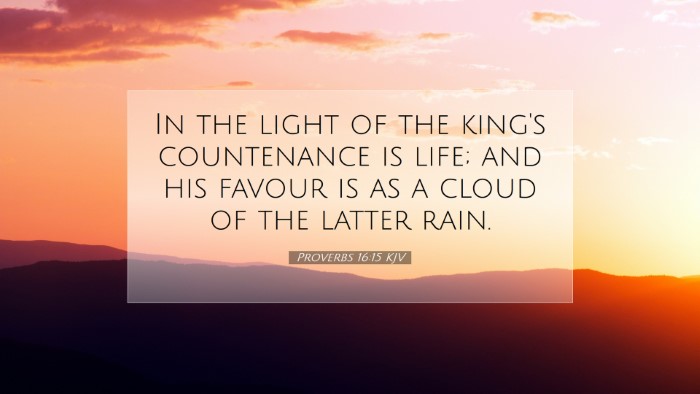Commentary on Proverbs 16:15
Verse: "In the light of the king's countenance is life; and his favor is as a cloud of the latter rain." (Proverbs 16:15, KJV)
Introduction
This profound verse encapsulates the relationship between a king's favor and life itself, using the imagery of light and rain to illustrate the vitality and blessing that such favor brings. In examining this passage, we draw insights from several public domain commentaries, including those of Matthew Henry, Albert Barnes, and Adam Clarke.
Context and Structure
The context of Proverbs 16 revolves around wisdom in action and the importance of yielding to divine guidance. This particular verse contrasts the outcomes of a ruler's sentiment towards his subjects, emphasizing that his favorable disposition can lead to a flourishing life.
Insights from Matthew Henry
Matthew Henry remarks on the significance of the "light of the king's countenance," stating that it represents the approval and benevolence of a ruler. He emphasizes that such favor is crucial for the communal and individual well-being of those under his reign.
- Life and Favor: Henry comments that where there is the favor of a king, there is life. This can be interpreted both literally and spiritually, suggesting a protective and life-giving role of authority.
- Latter Rain Imagery: The mention of "a cloud of the latter rain" symbolizes abundance and blessings. In agrarian societies, the latter rain was crucial for crops, indicating that royal favor brings prosperity.
Insights from Albert Barnes
Albert Barnes provides a detailed analysis of the imagery utilized in this verse. He notes that the countenance of a king, which symbolizes approval, can greatly impact the hearts and lives of those he governs.
- The Importance of Countenance: Barnes states that a king's countenance denotes his mood or disposition towards his people, suggesting that a positive countenance fosters a sense of security and well-being.
- Spiritual Implications: The verse can also be spiritualized to indicate that God's favor—akin to the king's countenance—is essential for a believer's life, synonymous with grace and divine providence.
Insights from Adam Clarke
Adam Clarke focuses on the agricultural metaphor of the latter rain, elaborating on its significance to the Israelite society. He asserts that understanding the role of this rain in their agricultural cycle provides depth to this verse.
- Agricultural Context: Clarke highlights that the latter rain was vital for ripening crops before harvest, signifying that the king’s favor prepares the people for future blessings and sustenance.
- Life Through Favor: He elaborates that just as crops thrive under the latter rain, lives flourish under the support and goodwill of a benevolent ruler.
Theological Reflections
This verse invites deeper theological reflection. The symbol of light hints at enlightenment; in spiritual terms, the illumination that comes from God—a divine light that guides and sustains us.
- Christ as the Ultimate King: For Christians, understanding this verse through the lens of Christ's kingship enriches its meaning. His favor signifies eternal life and abundant grace.
- Community Dynamics: The implications of this verse extend into community dynamics, illustrating that leaders play a pivotal role in shaping the lives and destinies of their followers.
Practical Applications
As ministers and scholars examine this text, several practical applications may emerge:
- Leadership: Emphasizing the weight of the leader's demeanor, leaders are called to embody grace and favor, reflecting a disposition that uplifts and encourages.
- Community Atmosphere: Creating an atmosphere where the leader, whether in a church, community, or organization, exudes positivity can foster life and growth.
- Personal Reflection: Individuals are encouraged to assess their own dispositions and how they influence others, seeking to be lights in their spheres of influence.
Conclusion
Proverbs 16:15 serves as a reminder of the power of favor and the preciousness of life that springs from relational dynamics. As we reflect on the contributions of Matthew Henry, Albert Barnes, and Adam Clarke, we recognize the value this verse holds not just for individual believers but for communal well-being. Through understanding the favor of a leader or king, whether earthly or divine, we gain insight into the nourishing elements that promote life, blessings, and growth. Such reflections challenge us to cultivate a countenance that positively impacts others, mirroring the favor of God and the transformative power of His presence.


